Audio
Professor Sarah Wilson (part 2)
Ablequest by
2RPH3 seasons
28 June 2024
14 mins
Part 2 of a conversation with a leading neuroscientist of benefits of music in brain injury recovery.

Ablequest from Radio 2RPH Sydney is a series of 15 minute programs which examine developments in assistive technology and initiatives for people living with a wide range of disabilities.
The series is presented by Barbara Sullivan, Marni Roper and Elaine Wziontek.
This edition is Part 2 of a conversation with Professor Sarah Wilson, a pioneer of music neuroscience research in Australia. She talks to Barbara Sullivan about how music and singing can enhance brain function and facilitate recovery after a brain injury such as a stroke.
Original broadcast date: 28.06.24
Speaker 1 00:03
With information on the latest developments in assistive technology and initiatives, 2RPH in Sydney brings you AbleQuest.
Speaker 2 00:16
Thanks for watching!
Speaker 1 00:19
Hello, I'm Marnie Roper. In this segment of AbleQuest, we continue an interesting conversation with internationally renowned music neuroscientist, Professor Sarah Wilson. She has recently taken on the role of co-CEO of the Victorian Collaborative Center for Mental Health and Wellbeing. In the previous program, Professor Wilson explained how music enhances brain function and how brain activity changes when we listen to music or sing solo or sing in groups. Today, Professor Wilson discusses how music aids recovery in people with acquired or degenerative brain injury.
But before that, she continues to explain what makes singing different in terms of brain function and the restorative power of singing in a group. Barbara Sullivan asked her whether choir singing creates an ideal atmosphere for inclusivity and promoting acceptance.
Speaker 3 01:21
That's right. And there's that connectivity that exists between the group because they've shared these many emotional moments. I mean music moves through many emotions in time and you go on a journey together as you do that. And each individual's experience and expression of that is going to vary a little bit too. So how you sing, you might sing with a little bit more gusto or a little bit less is part of your expression of that. And so there's space for variation and drawing people together around that. The other thing though that you can't do when you speak, you can't all speak at once. You have to take turns. If you don't take turns, it's a cacophony and you can't understand it.
Whereas the power of singing is that you can sing in unison of one voice or in harmony. Again, the same line or voice that splits to make a more beautiful sounding effect and create something that feels much bigger than you. There's a body of work that looks at this kind of transcendence that comes with music and singing and that helps us feel part of something greater that is outside of ourselves but connected to us nonetheless. And I think this is often what people will say when they say they felt very moved by music. You know, they had the chills, they maybe had some tears. Another term for it is karmamuta, this being extremely moved or affected by the music.
I have a PhD student who's currently looking at this as we speak in the land and we know very little about it, but we know that music has the capacity to do this and can often also bring in that nostalgic element as well that we were talking about before in relation to autobiographical memory and shared past experiences that may reunite us again in a moment where we're singing or doing music together.
Speaker 2 03:26
That must be part of the benefit if you are singing in a choir to see the impact on an audience for example or people who are listening and being part of the experience.
Speaker 3 03:36
One other thing we didn't talk about in relation to what's different about singing is the embodiment of the cognition and the emotion. So it's in real time in your body and we know that when we have embodied cognition and of course emotions are always embodied but that embodiment adds an additional level of understanding and I think experiential depth for most people.
Speaker 2 04:03
Yes, I have a friend who's involved in bell ringing, and the way she describes it, even though she's not actually singing, everything's in her head, there's all the areas of brain function that you've described seem to come into play with something like bell ringing as well.
Speaker 3 04:19
Yes, that's right. So when we put people in the scanner, many regions of the brain light up. It has a broad activation effect on the brain and really brings together all of those functions into a unified or systematic way. So it's like a full brain workout, if you like, or a powerful vitamin for the brain in that we know that people who engage regularly in music then do better on other cognitive tasks. They're better at verbal learning tasks or working memory tasks. They're better at a whole range of other skills which is not surprising when you think that in any given moment the complex act of making music and producing music or singing is using all of those networks. So it's kind of a fun way to work out your brain, exercise your brain without realizing you're actually doing it.
Speaker 2 05:16
Do you sing? Do you make music yourself?
Speaker 3 05:20
I do. I love to sing. Sometimes my kids wish I wouldn't sing quite as often, because I can't profess to be the world's best singer, but it's not about that. You don't have to be note perfect, it's actually the well-being aspects and the joy and the positivity that it brings. I also play piano and have played saxophone in the past, so I've had a life filled with music and I feel very, very fortunate for that.
Speaker 2 05:49
Now focusing on people suffering from an acquired or degenerative brain injury, and I know you've done quite a lot of work in this area, scientifically, how can singing be used in the rehabilitation process?
Speaker 3 06:02
So one of the things that we discovered really early in the work that we were doing was that there is an important overlap in the structures in the brain that support speaking and singing. And what we can do in the case of acquired brain injury is we can co-opt some of those structures to support rehabilitation. So if we think about someone who's had a stroke and they can no longer speak, some of those shared overlapping structures that are used for singing can then be used to relearn to speak after the stroke. And a particular therapy called melodic intonation therapy has been shown to be really efficacious in doing that.
Speaker 2 06:51
How does it work with a brain damaged by something like stroke?
Speaker 3 06:55
So it's been around for a long time, and there have been a number of studies looking at its efficacy that have given us some insight. But it would be fair to say that we need more research to fully understand the mechanisms of how it works. But we do have some clues from work that we've done. And I'll talk about the work that our lab has done looking at this. We did a really interesting study using functional magnetic resonance imaging. When you use an MRI scanner, but instead of taking a picture of the structure of the brain, you're taking a picture of the brain in action while it's doing a task. And this study was a precursor to understanding melodic intonation therapy and how it works. So if you bear with me, I'll describe that first and then move to the melodic intonation therapy.
Speaker 2 07:47
Great.
Speaker 3 07:48
But the MRI study compared expert singers with what we called, you know, shower singers, people who are naturally everyday singers and good at it, but not necessarily trained, and then self-confessed poor singers. And what we got them to do in the MRI scanner was to imagine that they were either singing a well-known tune or that they were engaging in a language task. And then once we'd taken pictures of those different cognitive functions, we looked at the level of overlap between the language network and the singing network. And we found something really interesting. We found that the extent to which the two networks overlap depends on how trained you are. So if you're a self -confessed poor singer, it turns out there's complete overlap.
And largely, it looks like you're singing with your language network, which might account for the fact that it's not really sounding that great. So it gave us some insight into that. And then at the other extreme, if you were a very well -trained opera singer, a professional singer, then there was very limited overlap between the two networks. And you'd almost through the training and the plasticity of the brain, develop almost an independent singing network.
Speaker 2 09:13
and you're applying a certain intellectual component there to the singing because as you're singing you're bringing all your understanding and training into it.
Speaker 3 09:23
Yes, that's right. It's an analytical approach, the task, high -level perceptual skills. All of those areas of the brain that we spoke about that light up when we listen to music, a key number of those regions involved. But with respect to the language network, the singing network sat alongside it. There was a side-by-side representation rather than this overlap that we saw in the less proficient singers. And then of course the group in the middle who are naturally good everyday singers, which is quite true of the population more broadly, they had some degree of overlap but not complete overlap.
So if we take these set of findings and now think about melodic intonation therapy, what it does essentially is if you have a stroke in the brain that impacts your language network, disrupts it or damages certain parts of it and you're having difficulty speaking after the stroke, then not in all cases but in certain people who've had a stroke in the anterior region of the brain, in the frontal lobes what we call who show broke as aphasia. Then melodic intonation therapy can be used to help them learn to speak again and it works in about 50% of people with whom it's done. So what it does is it takes very simple sentences that a person would need to utter in everyday life and then the therapist puts those to a very simple melody.
It's almost like pronounced emotional speech. It's tongue slash emotional speech. The melodies are very simple and they follow the natural inflection or intonation that the speech pattern would have. And it seems that when that happens, that engages parts of the singing network that can take on and presumably are separate from the areas of the language network that has been damaged. That can take on that kind of really intoned, strongly intoned speech and the person can practice those and then in response to questions, they can practice singing back the answer and then they gradually speak back the answer and the idea is to move from a very intoned singing response to... a spoken response.
Speaker 2 11:46
Now you talk about wellbeing. Your most recent role is as the co-CEO of the Victorian Collaborative Centre for Mental Health and Wellbeing. Why has it been established and what does it aim to achieve?
Speaker 3 11:57
This is a very exciting initiative and I feel so grateful and privileged that I've had the opportunity to take up this role. The Victorian Collaborative Center was established on the back of the Royal Commission into Mental Health in Victoria as the very first recommendation for driving transformative change to the mental health system across Victoria. So we have a very big and wide remit and a very important one. And it's a very humbling thing and that's where that gratitude and, you know, sense of responsibility, I guess, for that large remit comes from.
Of course, we can't do everything all at once, but one of the key things that we're doing is leading to better coordination and collaboration amongst different parts of the sector. So we know we have fabulous researchers in Victoria doing lots of research. [?] ... are wonderful working for mental health and causes of mental illness. We've got wonderful clinicians working tirelessly treating people with if you could. And then we've got people with lived and living experience who are supporting each other, their families, carers, friends, and attempting to also lead change and improve the system based on their expertise and experience.
The Collaborative Centre's mission, in a nutshell, is to bring all of those that you gather and into the one place when we do our work. So breaking down silos that we know currently exist in the system, and which people often describe as a bit of a labyrinth to find their way to the right service. Our role is going to be helping people have a much better path through and for it to have all of those perspectives embedded to lead ultimately to better outcomes for people.
Speaker 1 13:48
Barbara Sullivan has just been speaking with Professor Sarah Wilson, a leading music neuroscientist. You have just been listening to Ablequest, a programme that looks at developments in assistive technology.
Speaker 1 14:05
From Barbara Sullivan and Marnie Roper, thank you for listening and goodbye to our next program.
Continue listening

Blind Sports Australia CEO Matt Clayton speaks about its work with blind and vision impaired athletes across 21 sports.
Matt Clayton - Blind Sports Australia
Ablequest by 2RPH
5/5/2023
•13 mins
Audio

Vivid, Sydney's celebration of creativity, seen from a disability access focus by its director.
Gill Minervini - Vivid
Ablequest by 2RPH
19/5/2023
•14 mins
Audio

This program discusses dance movement therapy and how it works - featuring Cecilia King of the Dance Therapy Association.
Cecilia King - Dance Therapy
Ablequest by 2RPH
14 mins
Audio

What are the challenges of providing audio description on Oz TV? Hear Lauren Henley, Aust Federation of Disability Organisations.
Lauren Henley - Audio Description
Ablequest by 2RPH
16/6/2023
•14 mins
Audio

In Part 1 of a 2RPH interview, assistive tech expert David Woodbridge explores latest innovations to make everyday life easier.
David Woodbridge - Tech Update Part 1
Ablequest by 2RPH
30/6/2023
•14 mins
Audio

Features Robert Duff-Silsby of Luddi, Perth company developing assistive devices for all people and bodies.
Robert Duff-Silsby - Sexual Wellbeing
Ablequest by 2RPH
13 mins
Audio

In Part 2 of this conversation with 2RPH's Ablequest, expert David Woodbridge reviews latest assistive technologies.
David Woodbridge - Tech Update Part 2
Ablequest by 2RPH
28/7/2023
•14 mins
Audio

Matt Clayton of Blind Sports Australia and the Oz team's Chef de Mission, discusses the forthcoming World Blind Games in the UK.
Matt Clayton - World Blind Games
Ablequest by 2RPH
11/8/2023
•13 mins
Audio

Prof Kim Marriott of the Monash Assistive Technology and Society Centre, talks about the purpose and work of the Centre.
Kim Marriott - Monash Assistive Technology and Society Centre
Ablequest by 2RPH
25/8/2023
•13 mins
Audio

Ablequest features an interview with Serena Ovens, new CEO of Assistive Technology Supplies Australia or "ATSA".
Serena Ovens - Assistive Technology Supplies Australia
Ablequest by 2RPH
14 mins
Audio

Part 1 of an interview on the voice-activated app, Bindi Maps.
Anna Wright - Bindi Maps (Part 1)
Ablequest by 2RPH
14 mins
Audio

This is Part 2 of an interview with Dr Anna Wright, explaining how Bindi Maps works.
Anna Wright - Bindi Maps (Part 2)
Ablequest by 2RPH
14 mins
Audio

Artist Ebony Wightman of disability-led We Are Studios talks about art and challenge.
Ebony Wightman - We Are Studios
Ablequest by 2RPH
20/10/2023
•13 mins
Audio

Prof. Leeanne Carey discusses the SENSe program, her team's world-first therapy to help stroke survivors.
Leeanne Carey - SENSe Therapy
Ablequest by 2RPH
2/11/2023
•13 mins
Audio

Youthworks Accessibility Minister Bec Baines talks of making church accessible to young people with disabilities.
Bec Baines - Youth and Worship
Ablequest by 2RPH
16/11/2023
•14 mins
Audio

Nikki Hind, Australia's first blind fashion designer, discusses her work.
Nikki Hind: Blind Grit
Ablequest by 2RPH
1 December 2023
•14 mins
Audio

Dr Dimity Williams, family GP, recommends spending more time in nature - and a "green hour" each day.
Green Hour: Dr Dimity Williams
Ablequest by 2RPH
5 December 2023
•14 mins
Audio

Imagine sitting in a wheelchair for hours, being unable to move your fingers or arm to do simple things like pick up a glass.
Konstanze Hager - Bateo
Ablequest by 2RPH
Konstanze Hager - Bateo
•14 mins
Audio

Action Audio is a new language being created to transcend sport.
Machar Reid - Action Audio
Ablequest by 2RPH
Machar Reid - Action Audio
•14 mins
Audio

What a difference one person with experience, passion and energy can make to many lives.
Julie Ross-Edwards - Head High
Ablequest by 2RPH
Julie Ross-Edwards - Head High
•14 mins
Audio

Driver educator outlines what's needed for a person with disability to get a driver's licence.
Ronak Shah: on-road driving education
Ablequest by 2RPH
12 January 2024
•14 mins
Audio

Vision Australia's Christo Sarantakis talks of his life, blindness and assistive tech changes.
Christo Sarantakis of Vision Australia
Ablequest by 2RPH
26 January 2024
•14 mins
Audio

Introducing Australia's first pictureless feature film, TOUCH, showing in Sydney.
Majella Knobel: "Touch" - open air movie
Ablequest by 2RPH
9 February 2024
•14 mins
Audio

An expert discusses the use of horticultural therapy for people with disabilities.
Steven Wells: horticultural therapy
Ablequest by 2RPH
23 February 2024
•14 mins
Audio

Features articles on latest blind-assistive tech including a new bus app and smart ear buds.
Assistive tech news catchup
Ablequest by 2RPH
8 March 2024
•14 mins
Audio

Features an innovative hospitality industry training program for people with disabilities.
Saraya O'Connell - Hotel Etico Independence Program
Ablequest by 2RPH
22 March 2024
•14 mins
Audio

Guests discuss the Obi robotic dining assistant for people with upper arm disabilities.
Hugh Kingley and Rachel Dekkar: Obi
Ablequest by 2RPH
19 April 2024
•14 mins
Audio

A spy-themed computer program tackles the mystery of social encounters - outlined by its company's CEO.
Kathleen Davey - Social Science Translated
Ablequest by 2RPH
3 May 2024
•14 mins
Audio

A Sydney organisation delivers creative arts and life skills to people with disabilities.
ChoppA Green - Studio Artes
Ablequest by 2RPH
17 May 2024
•14 mins
Audio

An award-winning Central Coast NSW disability service shares its successful strategies.
Lonestar Makoni - Breaking Barriers Disability Services
Ablequest by 2RPH
31 May 2024
•14 mins
Audio

Part 1 of a conversation with an Australian neuroscience research pioneer about benefits of music in brain injury recovery.
Professor Sarah Wilson (part 1)
Ablequest by 2RPH
14 June 2024
•14 mins
Audio

Part 2 of a conversation with a leading neuroscientist of benefits of music in brain injury recovery.
Professor Sarah Wilson (part 2)
Ablequest by 2RPH
28 June 2024
•14 mins
Audio

A CEO talks about his company's award-winning assistive physical therapy device.
Justin Keenan - LusioMate
Ablequest by 2RPH
12 July 2024
•14 mins
Audio

Information about a program teaching good cyber-security practices to make daily life safer.
Jess Wilson: Be Connected
Ablequest by 2RPH
26 July 2024
•14 mins
Audio

A veteran print disability broadcaster with macular degeneration shares her experiences.
Teresa Plane - 2RPH
Ablequest by 2RPH
9 August 2024
•14 mins
Audio

The founder of a blind-assistive technology company shares latest developments.
Peter Ford - Control Bionics (part 1)
Ablequest by 2RPH
6 September 2024
•14 mins
Audio

Part 2 of an interview with the head of an innovative blind-assistive technology company.
Peter Ford - Control Bionics (part 2)
Ablequest by 2RPH
20 September 2024
•13 mins
Audio

Looks at a project to better inform refugee and migrant women on AI.
Good Things - Jess Wilson
Ablequest by 2RPH
4 October 2024
•14 mins
Audio

An expert with lived experience corrects some widespread misconceptions about stuttering.
Dale Williams - Stuttering Awareness Day
Ablequest by 2RPH
18 October 2024
•14 mins
Audio

An inventor discusses his an innovative cane tip to help people with blindness or low vision.
Peter Rickards - Sensaball
Ablequest by 2RPH
15 November 2024
•13 mins
Audio

Part 1 of an interview with an Australian expert on low-vision-assistive technology, on AI and other developments.
David Woodbridge (part 1)
Ablequest by 2RPH
29/11/2024
•14 mins
Audio

Conclusion of an interview with a leading Australian expert on blind-assistive technology.
David Woodbridge (part 2)
Ablequest by 2RPH
13 December 2024
•14 mins
Audio

Looks at the leading stroke treatment work of the Royal Rehabilitation Hospital, Ryde NSW.
Jason Redhead and Graham Cooper of Royal Rehab Ryde
Ablequest by 2RPH
10 January 2025
•14 mins
Audio

An innovative social media platform aims to address isolation and loneliness in the disability community.
Steve Bear - Alvie
Ablequest by 2RPH
7 February 2025
•12 mins
Audio

Australia's largest provider of Auslan sign services outlines its important work.
Brett Casey - Deaf Connect
Ablequest by 2RPH
21 February 2025
•14 mins
Audio

Looks at an Australian organisation's work at helping men seek help and build self-awareness.
Tommy Herschell - Find Ya Feet
Ablequest by 2RPH
7 March 2025
•14 mins
Audio

A speech pathoplogist discusses her work with young people's complex communication needs.
Denise West - Scope
Ablequest by 2RPH
21 March 2025
•14 mins
Audio

A vision-impaired disability rights advocate talks of her work and learning podcast skills.
Freya Wolf
Ablequest by 2RPH
4 April 2025
•14 mins
Audio

A leading Australian eye researcher talks of his team's work in creating new hope for people with retinal damage.
Raymond Wong - Centre for Eye Research Australia
Ablequest by 2RPH
18 April 2025
•14 mins
Audio

A wheelchair-using business owner, facilitator and car rally driver shares experiences and insights.
Mel Harrison - Sitting Low, Reaching High
Ablequest by 2RPH
2 May 2025
•13 mins
Audio

Disability Pride Month in July promotes awareness about people with disability and also celebrates individuals with disability.
Hannah Solomons - Sydney Disability Pride
Ablequest by 2RPH
Hannah Solomons - Sydney Disability Pride
•14 mins
Audio

Deb Roach is a three-time pole dancing world champion yet she has only one arm.
Deb Roach
Ablequest by 2RPH
Deb Roach
•13 mins
Audio
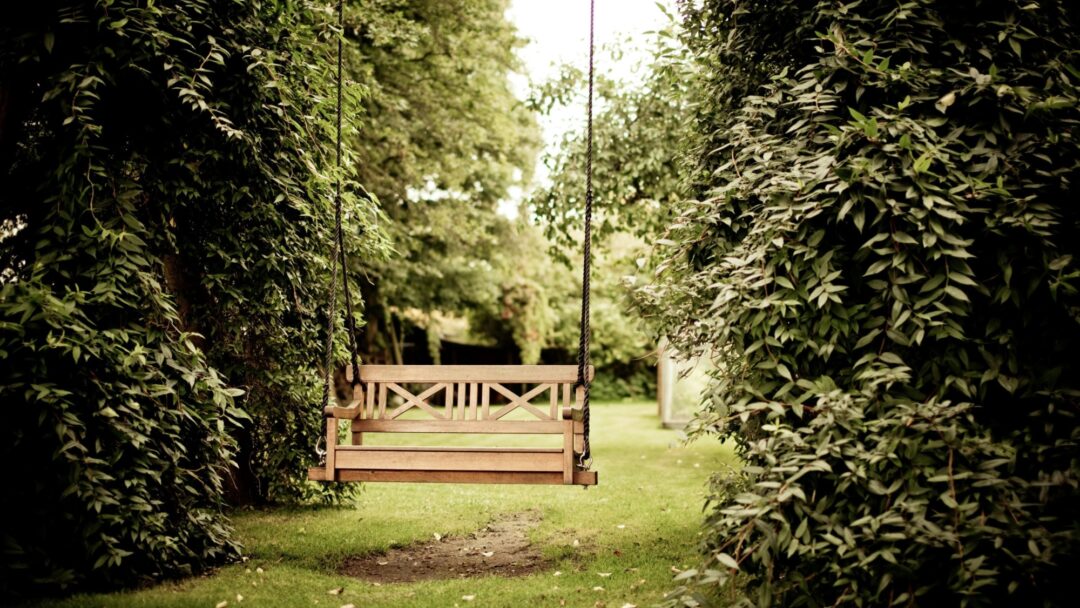
Being in nature is good for you whether it is being in the garden or walking along the beach.
Kayte Kitchen - Admirari Nature Therapy
Ablequest by 2RPH
Kayte Kitchen - Admirari Nature Therapy
•14 mins
Audio
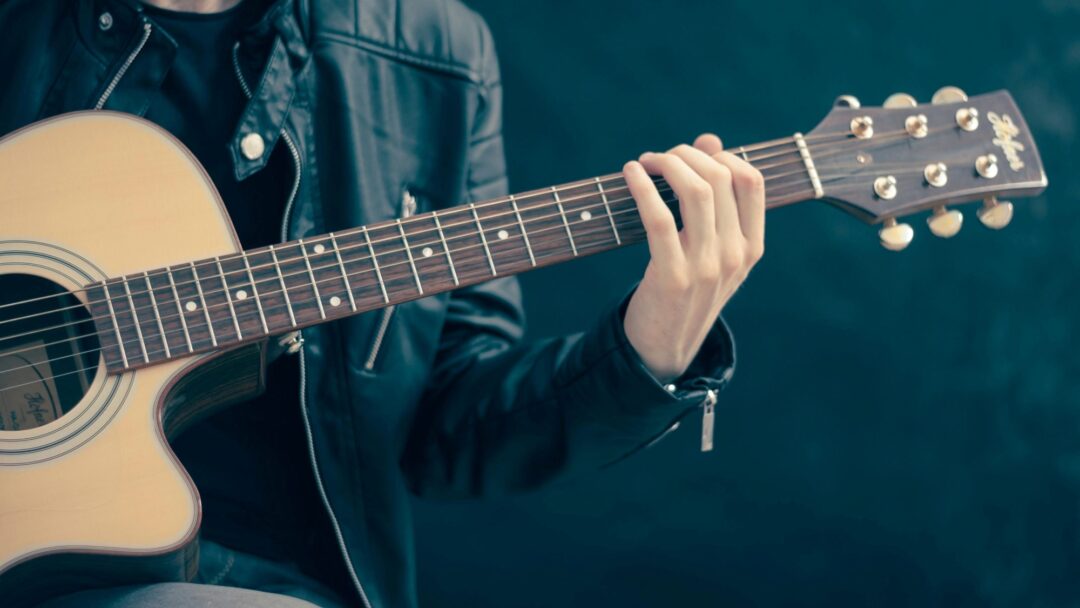
Music can evoke emotions that bring back memories and the same is true for people living with dementia.
Zara Thompson - Music Therapy
Ablequest by 2RPH
Zara Thompson - Music Therapy
•14 mins
Audio
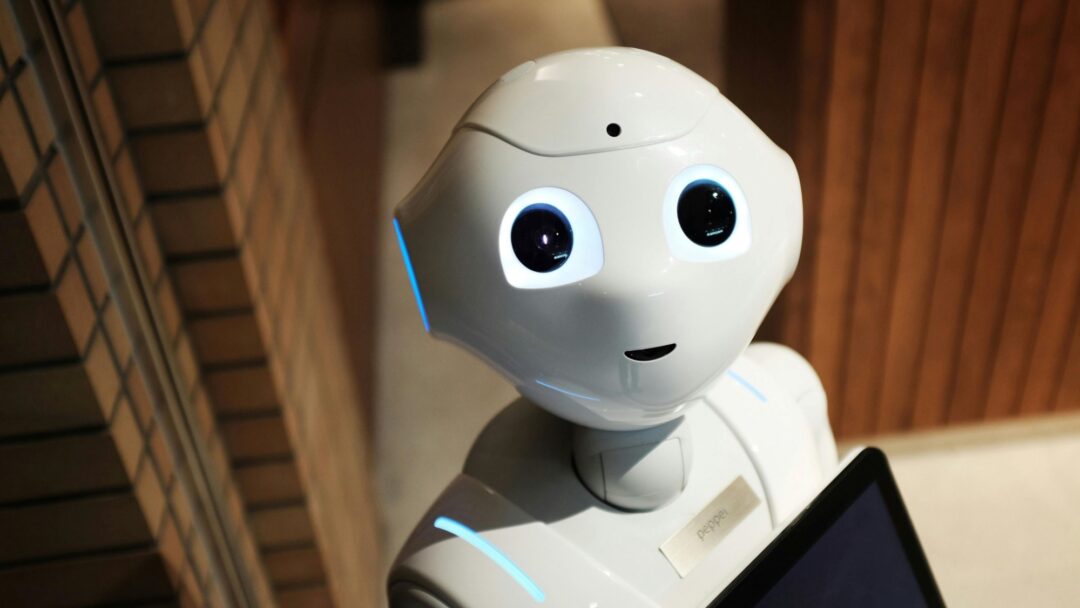
Laura Boccanfuso is founder and CEO of Van Robotics, a social robotics company based in South Carolina in the United States.
Laura Boccanfuso - Van Robotics
Ablequest by 2RPH
Laura Boccanfuso - Van Robotics
•14 mins
Audio

Two years ago Maggie O'Connell, in her mid 20's never had a full time job.
Maggie O'Connell - AFP
Ablequest by 2RPH
Maggie O'Connell - AFP
•14 mins
Audio
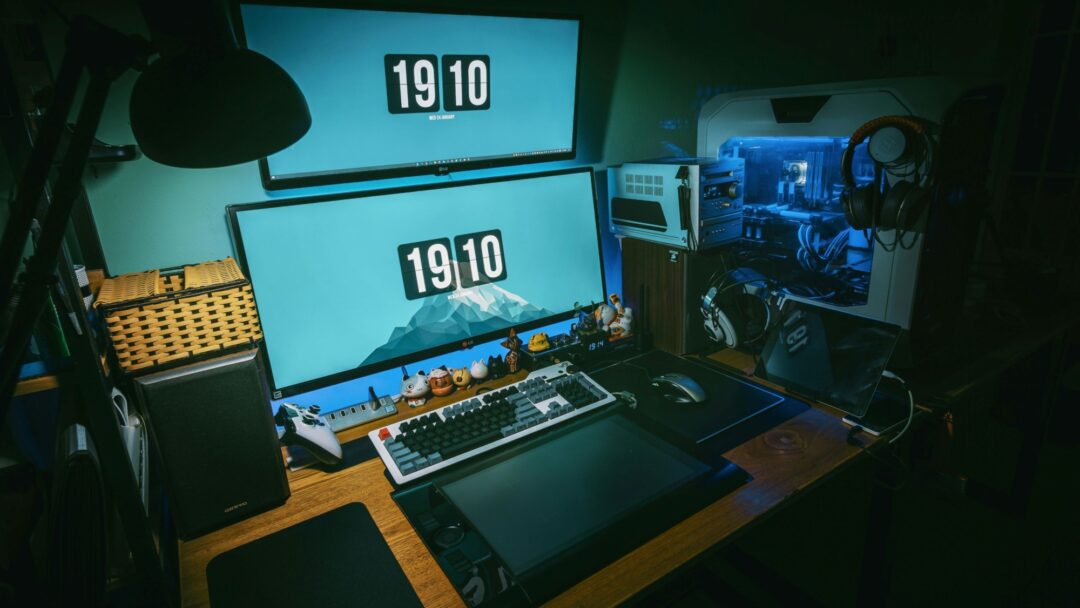
Julie Ross-Edwards, founder of Head High Disability Services, returns to Ablequest to speak more about Head High's philosophy and special approach.
Head High (Update)
Ablequest by 2RPH
Head High (Update)
•13 mins
Audio
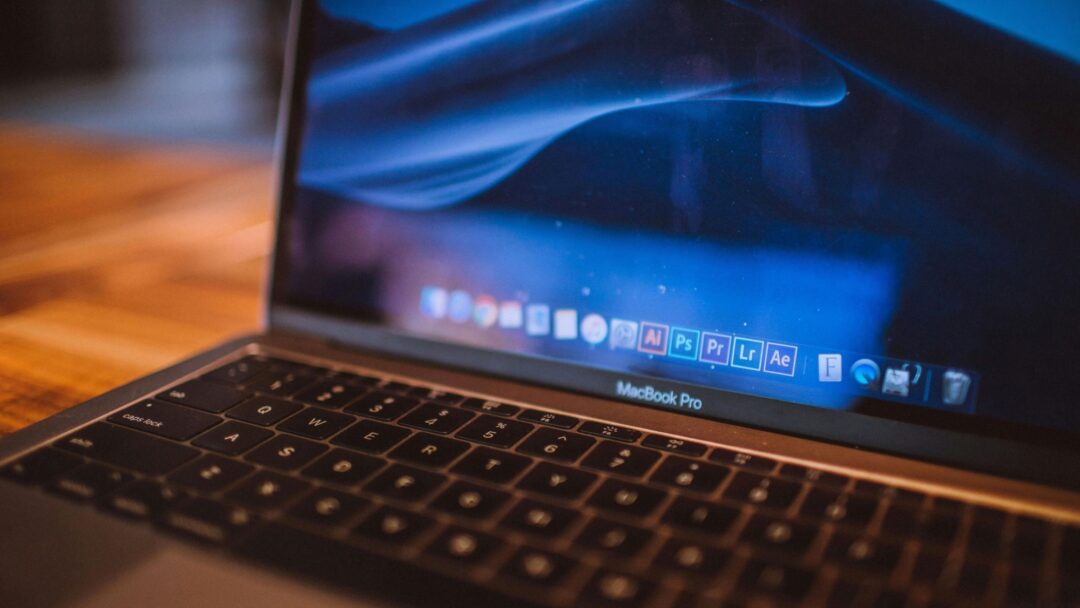
David Woodbridge, an expert in assistive technology for people with no or low vision, is a regular guest on Ablequest.
David Woodbridge
Ablequest by 2RPH
David Woodbridge
•14 mins
Audio

Pete Horsley is the Founder of Remarkable, a global start up and initiative of the Cerebral Palsy Alliance.
Pete Horsley - Remarkable Disability Tech Summit
Ablequest by 2RPH
Pete Horsley - Remarkable Disability Tech Summit
•14 mins
Audio